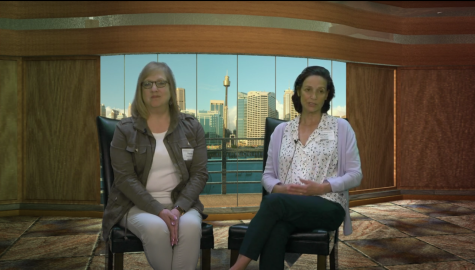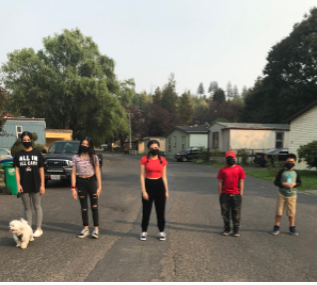Journaling To Remember
Bullet journaling, or BuJo, was originally created by Ryder Carroll. Diagnosed with ADD at a young age, he said, “At the time, there was not a lot known about the condition, and there were no resources, not to mention that there was no Internet. So the few tools that I could find were either too rigid or too complicated. They didn’t work the way that my mind worked.” Which lead him to create a method that worked for him, that he slowly started to realize worked for many other people, too.
Unlike planners which have everything built for you with the yearly, monthly and weekly schedules, bullet journals are essentially blank journals. You fill them with things that are applicable to you. You have the ability to experiment with what kinds of layouts work for you, be it for calendars or small things for organization. You can make lists of movies you want to see, books you want to read. You can also use it to track things directly correlating to you, like your habits or expenses. You fill it with everything you love and enjoy while keeping yourself productive and motivated.
A student who has only recently started bullet journaling is Kaylee Gunderson, a freshman at MHS that started only a week ago. She started mostly out of curiosity after seeing many other people do it, along with wanting another way of remembering assignments and events. “I work on adding new things to my journal everyday,” She says, enjoying the ability to stay organized in a way that she enjoys and having the liberty to explore hobbies that she forgot she enjoyed, like drawing. In her journal she’s able to keep pages for birthdays, assignments, and personal events that go on.
Gideon Yamada, a senior at Milwaukie High School has been bullet journaling for about 4 months, starting because the regular plannings didn’t have everything he needed or wanted. With bullet journals he’s able to record things that are specified to him, like habits, sleep and expenses. He elaborated on the fact that BuJo helps him organize his life, helping visualize and know what will be going on throughout the month or the week “without it I wouldn’t know what needed to be done and what I needed to do. This month for example, I’ve been incredibly busy so I haven’t had the time to sit down and actually bullet journal, and I’ve noticed how messy my life has been.”
Bullet journaling is a way for you to keep track of how your life is going and to be able to visualize development through your process. Many students are afraid of bullet journaling, using the phrase, “I’m not creative enough,” as a shield to not do bullet journaling, but being creative isn’t what it’s all about. As Gideon says,“Honestly, you don’t need to be creative and artistic to start a bullet journal. What I tell people when they’re first starting a bullet journal is to create your journal and form it to your needs and wants for your journal. It isn’t about perfection, it’s about getting your life together.” Simply, BuJo is a way to declutter your mind. In environments where work is consistent and overbearing, bullet journaling develops a way for you to easily differentiate tasks and distractions.








